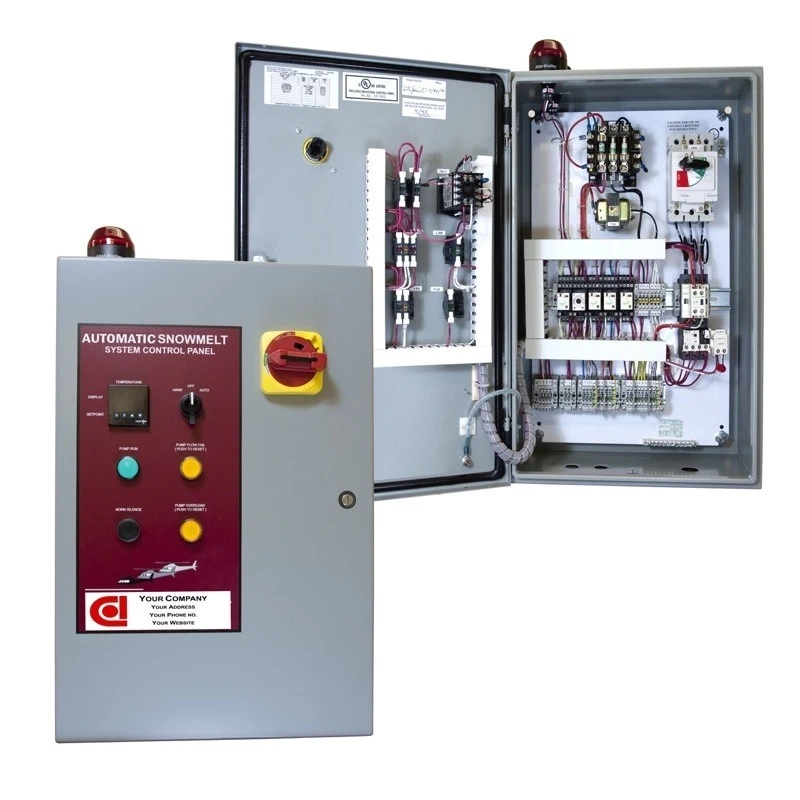In the fast-paced world of modern industry, efficiency and safety are paramount. One critical component that plays a vital role in ensuring both is the electrical control panel. Though often overlooked, these panels are the backbone of any electrical system, serving as the central hub where all electrical operations are monitored and controlled.
What is an Electrical Control Panel?
An electrical control panel is an assembly of various electrical components that manage and regulate the operation of machinery and equipment. These components typically include circuit breakers, switches, relays, and meters, all housed within a metal enclosure. The primary function of the panel is to control and distribute power within an industrial or commercial setting, ensuring that the electrical systems function smoothly and safely.
The Role of Electrical Control Panels in Industrial Operations
In an industrial setting, the electrical control panel is akin to the brain of the operation. It oversees the performance of machinery, ensuring that everything runs according to plan. Here’s why these panels are indispensable:
Centralized Control: Electrical control panels provide a centralized location from which operators can manage multiple machines or processes. This centralization simplifies complex operations and enhances productivity by allowing quick adjustments to be made in real-time.
Safety Assurance: Safety is a top priority in any industrial environment. Electrical control panels are designed with safety features like circuit breakers and protective relays, which prevent overloads, short circuits, and other electrical faults that could lead to hazardous situations.
Energy Efficiency: By precisely controlling the power distribution, electrical control panels contribute to energy efficiency. They ensure that only the required amount of power is delivered to each machine, reducing waste and lowering energy costs.
Automation and Monitoring: Modern electrical control panels are often integrated with automated systems and monitoring tools. These systems can track performance metrics, detect anomalies, and even predict maintenance needs, leading to increased uptime and reduced operational costs.
Types of Electrical Control Panels
Different industries have varying requirements, and as such, electrical control panels come in several types, each tailored to specific needs:
Power Control Panels: These panels are responsible for managing the flow of electrical power to machinery and equipment. They are commonly used in manufacturing plants and large industrial facilities.
Automation Panels: Designed for industries that require a high level of automation, these panels control and monitor automated processes, ensuring that operations run smoothly without the need for constant human intervention.
Motor Control Centers (MCC): MCCs are used to control the motors that drive industrial equipment. They are essential in industries such as manufacturing, where numerous motors need to be controlled simultaneously.
Lighting Control Panels: These panels manage the lighting systems in large commercial or industrial spaces, ensuring optimal lighting conditions while conserving energy.
Choosing the Right Electrical Control Panel
Selecting the appropriate electrical control panel for your needs is crucial. Factors to consider include the complexity of the operations, the environment in which the panel will be installed, and the specific safety requirements of your industry. Consulting with experts and understanding the unique demands of your operation can help ensure that you choose a panel that meets your needs both now and in the future.
Conclusion
Electrical control panels are the unsung heroes of modern industry. They ensure that machinery operates efficiently, safely, and reliably, making them indispensable in any industrial setting. As technology continues to advance, these panels are becoming increasingly sophisticated, offering greater control, automation, and monitoring capabilities. Whether you are setting up a new facility or upgrading an existing one, investing in the right electrical control panel is a decision that will pay dividends in the long run.



